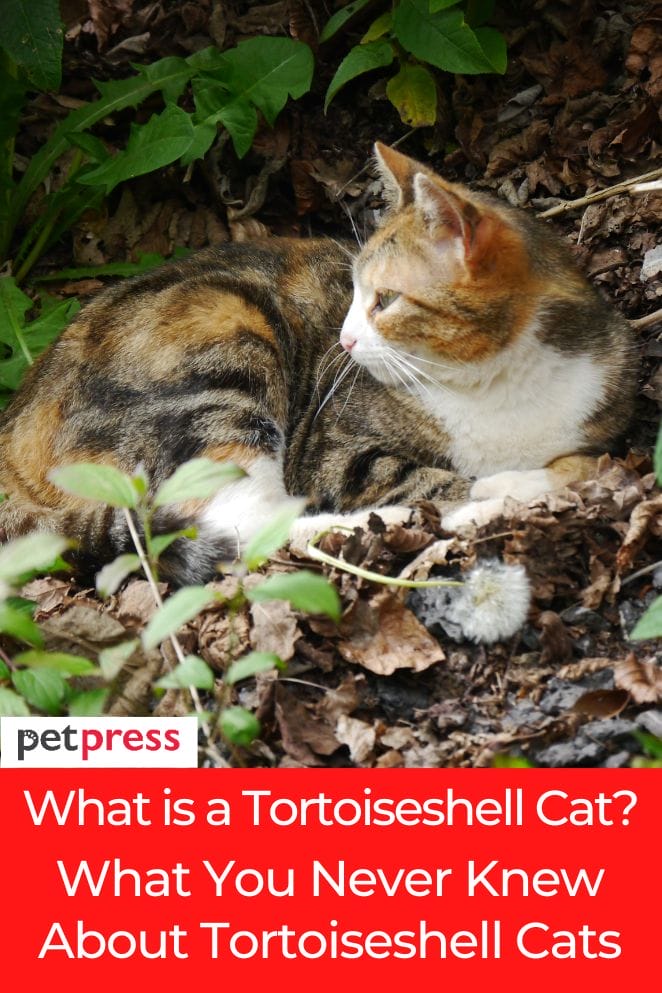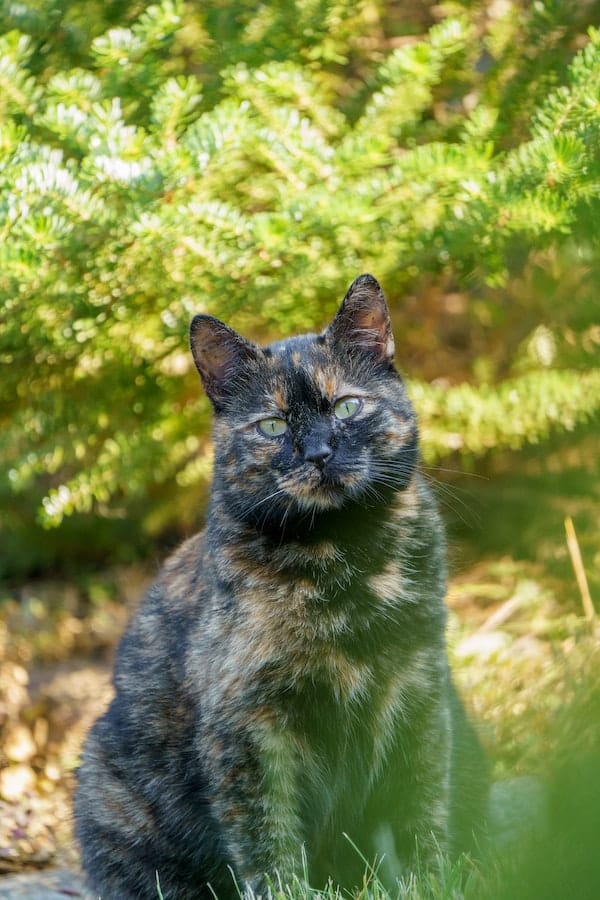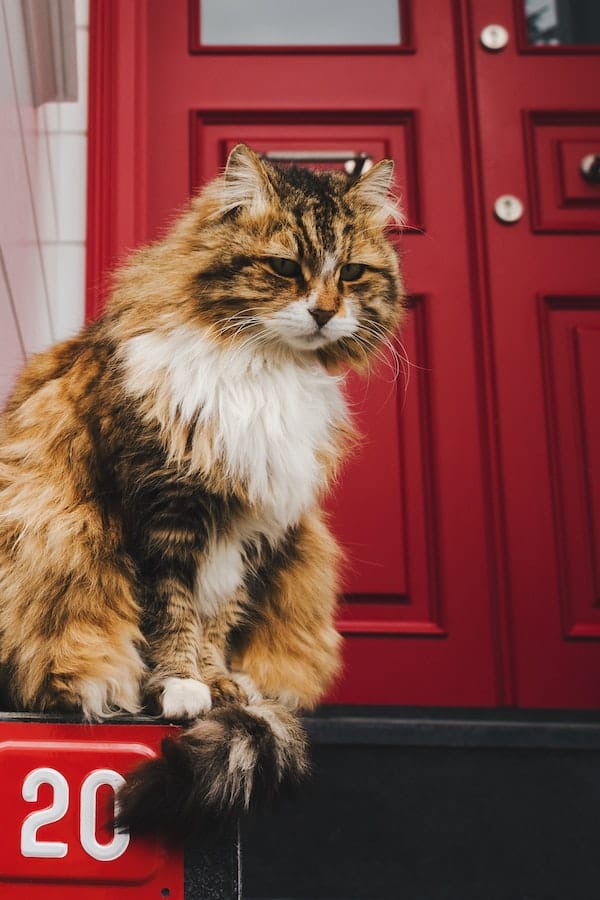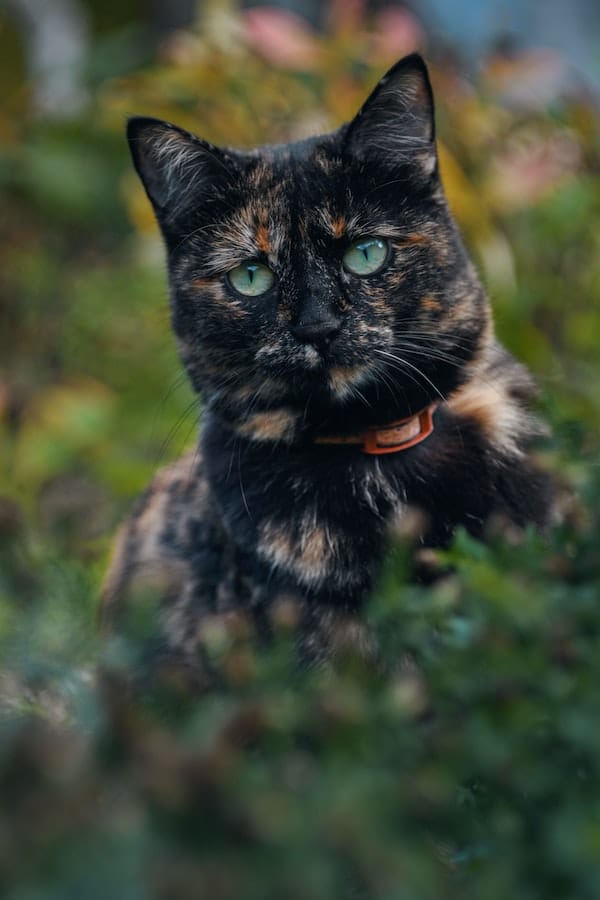
Picture a cat with a coat that resembles a beautiful mosaic of autumn leaves, painted in rich shades of black, orange, and brown.
That’s the mesmerizing allure of a tortoiseshell cat. In this article, we’ll embark on a journey into the realm of these distinctive feline companions.
We’ll delve into their fascinating history, unravel the complexities of their personalities, shed light on their unique health considerations, and unveil the secrets to providing excellent care for these marvelous pets.
What is a Tortoiseshell Cat?
Tortoiseshell cats are captivating felines known for their distinct patchwork coat of black, orange, and brown hues, resembling the patterns on tortoise shells.
They are unique both in appearance and genetics, with their striking coats resulting from a special combination of X chromosomes, making them almost exclusively female.
These cats are prized for their individuality and often have sassy and independent personalities.
Owning a tortoiseshell cat is like having a living work of art as a companion, making them truly special in the world of cats.

History of Tortoiseshell Cats
Tortoiseshell cats have a rich history spanning cultures and centuries.
They were revered in ancient Egypt, considered lucky protectors in Japan, and featured in folklore as mystical creatures.
Their unique genetics have intrigued scientists, and their aesthetic appeal has made them subjects of art and literature.
These cats represent a living piece of history, embodying the stories and beliefs of diverse cultures throughout time.
Personality of Tortoiseshell Cats
Let’s dig deeper into the intriguing personality of tortoiseshell cats.
They’re like a fine blend of contrasting traits that make them both charming and enigmatic companions.
Are they friendly or independent?
In terms of their temperament, tortoiseshell cats tend to be quite independent and strong-willed.
They march to the beat of their own drum, much like that friend who has their unique style and preferences.
While they can be affectionate, they also highly cherish their personal space.
It’s akin to having a roommate who enjoys your company but also appreciates having their own private corner in the apartment.
Are they active or laid-back?
Tortoiseshell cats exhibit bursts of high energy, akin to a child on a sugar rush, transforming your living space into a spontaneous playground as they chase toys and perform acrobatics.
However, these lively episodes are contrasted by their ability to effortlessly switch to a calm and laid-back state, much like switching between “play mode” and “chill mode.”
This versatility makes them an ideal companion for those seeking a pet with dynamic energy levels that can adapt to different situations.
Are they good with children or other pets?
The compatibility of tortoiseshell cats with children and other pets is influenced by their unique temperaments.
Socialization from an early age can foster strong bonds with kids and other animals, but each cat’s preferences and interactions vary.
Tortoiseshell cats have the potential to adapt and thrive in diverse environments, but the key is patience and understanding, allowing their complex personalities to unfold.

The Health of Tortoiseshell Cats
Let’s talk about the health of our beloved tortoiseshell companions. Now, here’s the scoop:
Are they prone to any health problems?
Tortoiseshell cats, just like any other feline companions, aren’t more susceptible to specific health issues because of their coat color.
They need the same routine veterinary check-ups and general care as any other cat.
Common health problems like dental issues, urinary parcel inconveniences, and keeping a solid weight can influence them as well.
Keep in mind, that each feline is one of a kind, so it’s fundamental to give them customized care and regard to guarantee their prosperity.
Their jacket tone doesn’t direct their well-being; it’s the nature of the care they get that genuinely matters.
How long do they typically live?
Tortoiseshell cats typically have a lifespan of 12 to 15 years or more, depending on their health and care.
Regular vet check-ups are crucial for their well-being. Some may even live longer, adding more chapters to the story of their companionship.
It’s like embarking on a journey filled with love, laughter, and unique charm when you welcome a tortoiseshell cat into your life.
Caring for a Tortoiseshell Cat

Let’s dive into the care guide for our stunning tortoiseshell companions.
They may be unique, but their care needs are quite similar to other cats, with a dash of their own personality.
What kind of food do they need?
To care for a tortoiseshell cat, it’s crucial to provide high-quality cat food tailored to their age and activity level.
Just like a gourmet chef crafting a menu, choose the right ingredients to meet their specific needs at different life stages.
Keep an eye on their weight and ensure they have access to fresh water for optimal health and happiness.
How much exercise do they need?
Tortoiseshell cats need regular exercise to stay active and mentally stimulated.
Interactive toys and scratching posts are great for keeping them engaged.
The amount of exercise they require varies from cat to cat, so it’s essential to tailor their playtime to their energy levels.
Providing opportunities for physical activity and mental stimulation ensures a healthier and happier life for your tortoiseshell companion.
How often do they need to be groomed?
Regular grooming is essential for tortoiseshell cats to keep their unique coats in good condition.
Depending on their specific coat and susceptibility to matting, grooming frequency can vary from daily to weekly.
Grooming involves brushing to reduce shedding, prevent matting, and distribute natural oils.
It’s also an opportunity to check for fleas or ticks and trim their claws.
Grooming is not only about appearance but also their comfort and health, creating a bonding experience between you and your feline companion.
Conclusion
Tortoiseshell cats, with their distinctive personalities and striking appearances, make wonderful companions for those who appreciate their unique charm.
Whether you’re already a proud owner or considering adopting one, understanding their history, personality traits, and care needs is the key to fostering a rewarding bond.
FAQs
While the majority of tortoiseshell cats are female due to their genetics, male tortoiseshell cats do exist but are relatively rare.
Some tortoiseshell cats are known for their spirited personalities, but each cat is an individual with its own temperament.
Coat color is just one factor influencing a cat’s behavior, and it doesn’t determine their personality entirely. Individual temperament varies.
- Does Cat Litter Melt Ice? The Complete Guide to Winter Safety - January 30, 2026
- Happy Tail Dogs: Understanding This Common Canine Condition - January 29, 2026
- How Cold Can Outdoor Cats Handle? Feline Winter Safety - January 27, 2026


GIPHY App Key not set. Please check settings